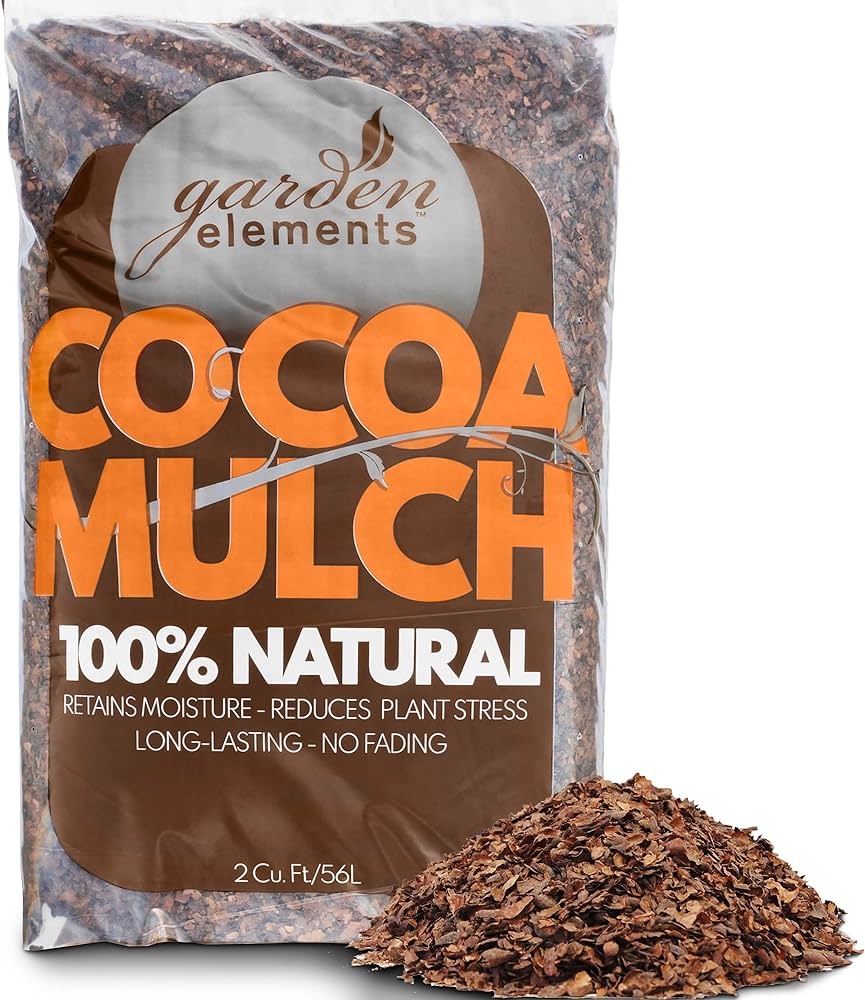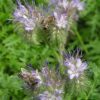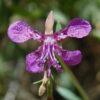Article-at-a-Glance: Cocoa Mulch and Safer Alternatives
Cocoa mulch can be toxic to pets due to theobromine and caffeine content.
Cedar mulch serves as a non-toxic alternative with natural insect-repelling properties.
There are multiple non-toxic mulch options including straw, grass clippings, and rubber mulch.
Ensuring a pet-friendly garden involves choosing the right mulch and supervising your pets.
Regular mulch replacement and understanding plant-specific needs contribute to a healthy garden ecosystem.
“Natural Cocoa Bean Shell Mulch for …” from www.amazon.com and used with no modifications.
Why Cocoa Mulch Isn’t a Sweet Deal for Your Garden
When we think of mulch, we often envision a rich, textured layer that blankets our garden beds, offering a feast for the eyes and nourishment for the soil. But what if that feast turns into a potential hazard? Cocoa mulch, a byproduct of the chocolate industry, has gained popularity for its attractive odor and color. However, it’s not all rosy. The truth is, this sweet-smelling mulch can be a bitter pill for our furry friends.
The Toxic Truth: Risks for Pets
Most importantly, the safety of our pets is paramount. Cocoa mulch contains theobromine and caffeine, the same substances that make chocolate a no-go for dogs and cats. Ingesting even small amounts can lead to symptoms like vomiting, diarrhea, and in severe cases, seizures or death. It’s a risk that’s not worth taking, especially when curious noses are prone to exploring every inch of the garden.
Because of its theobromine and caffeine content, cocoa mulch can be extremely toxic to pets. Symptoms of ingestion include vomiting, diarrhea, hyperactivity, abnormal heart rhythm, and seizures.
Varying Theobromine Levels Across Products
It’s also crucial to note that not all cocoa mulches are created equal. The levels of theobromine can vary across different brands and batches. Some manufacturers claim their products are ‘theobromine-free’ and safe for pets, but the inconsistency is a gamble. Why take the chance when there are safer alternatives that ensure peace of mind?
Transitioning to safer mulching practices doesn’t mean sacrificing the health of your garden or the joy of your pets. Let’s dive into the aromatic world of cedar mulch, a fantastic non-toxic alternative that might just be the perfect solution for your garden’s needs.
Embracing cedar as your mulch of choice isn’t just about avoiding the dangers of cocoa mulch; it’s about enhancing your garden with a host of benefits. Cedar mulch is a powerhouse in the garden, and here’s why.
Cedar’s Natural Insect-Repelling Properties
Cedar mulch brings with it a natural, pleasant aroma that does more than just delight our senses. This scent is uninviting to many pests, including moths, termites, and certain ants, making it an excellent choice for protecting your garden without resorting to harsh chemicals. It’s a win-win: your plants stay safe, and you maintain a non-toxic environment for your pets and family.
How Cedar Benefits Soil Health
Besides repelling pests, cedar mulch is also a friend to your soil. As it breaks down, it adds beneficial organic matter, improving soil structure and water retention. This means your plants will have a healthier environment to thrive in, and you’ll be watering less often—a boon for conservation and your back!
Guide to a Pet-Friendly Garden
Creating a garden that’s a sanctuary for both you and your pets is about more than just choosing the right mulch. It’s about creating an environment where you can relax, knowing your furry friends are safe as they romp and explore.
Selecting Safe Mulch Materials
When it comes to selecting mulch, safety is the top priority. Opt for non-toxic options like cedar, pine, or hemlock. These materials pose no health risks to pets and still provide the aesthetic and horticultural benefits you’re looking for. Always check labels and certifications to ensure the product is pet-friendly.
Setting Boundaries: Enclosures and Supervision
Of course, even with non-toxic mulch, supervision is key. Pets are curious by nature, and they may still try to chew on organic materials. Consider creating enclosures around garden beds or setting up pet-friendly play areas away from your plants. And when you can’t be outside with them, make sure they’re in a secure space where they can’t get into any gardening mischief.
Diverse Mulch Alternatives to Cocoa
While cedar is a fantastic option, there are other avenues to explore in the world of non-toxic mulching. Each alternative comes with its own set of advantages, and the right choice depends on your specific garden needs and aesthetic preferences.
For instance, let’s talk about going organic with materials like straw and grass clippings. These are not only safe for your pets but also work wonders for your garden’s health.
Then there’s the durability of stone and rubber mulches. While they don’t offer the same soil-enhancing benefits as organic options, they do provide longevity and a unique look that might just be what your garden is calling for.
Lastly, don’t overlook the potential of pine needles and leaves. These natural byproducts can be collected from your own backyard, making them a sustainable choice that’s kind to both your wallet and the environment.
Going Organic with Straw and Grass Clippings
Straw and grass clippings are excellent for vegetable gardens and flower beds alike. They’re readily available, especially if you have a lawn, and they break down to enrich the soil. Plus, they’re lightweight and easy to spread, which means less work for you.
The Longevity of Stone and Rubber Mulches
If you’re looking for a more permanent solution, stone and rubber mulches are the way to go. They won’t break down like organic mulches, meaning they don’t need to be replaced as often. Stone mulch can also help with drainage issues, and rubber mulch is a recycled product, which is a plus for the environmentally conscious gardener.
For example, rubber mulch is an ideal choice for play areas, providing a soft surface that’s safe for kids and pets alike. It’s also available in a variety of colors to match any garden design.
Unlock the Potential of Pine Needles and Leaves
Pine needles, also known as pine straw, are an excellent mulch for acid-loving plants like azaleas and blueberries. They’re natural, lightweight, and allow for easy water penetration. Similarly, fallen leaves can be shredded and used as mulch. They provide a habitat for beneficial insects and gradually improve soil quality as they decompose.
Crafting Your Garden’s Unique Eco-System
Your garden is more than just a collection of plants; it’s a living ecosystem that you have the joy and responsibility of shaping. The choices you make in mulching materials can have a significant impact on the health and aesthetics of this ecosystem.
Consider the specific needs of your plants, the local climate, and the level of maintenance you’re willing to commit to. Whether you choose cedar, straw, or stone, each mulch will play a role in crafting the unique environment your garden needs to flourish.
Getting Creative with Local Resources
For example, if you live in an area with abundant pine trees, pine needles might be the most sustainable and cost-effective mulch option for you. On the other hand, if you’re in a coastal region, seashells can be crushed and used as a unique, alkaline mulch that’s perfect for certain types of gardens.
In the end, the key is to balance aesthetics, safety, and garden health. By choosing non-toxic mulch alternatives, you’re not only creating a beautiful garden but also a safe haven for all the living creatures that call it home.
Getting Creative with Local Resources
Now, let’s think outside the bag of store-bought mulch. Look around you; nature often provides what we need. Your local environment is a treasure trove of mulching materials. Fallen leaves, pine needles, or even seaweed from your local beach (if regulations permit collection) can be excellent mulch materials that are both sustainable and cost-effective.
Balancing Aesthetics and Safety in Landscaping
Creating a garden that’s both visually appealing and safe for all its visitors is an art. It’s about finding that perfect blend of form and function. Non-toxic mulch alternatives like cedar chips or decorative stones can enhance the beauty of your garden while keeping it a safe place for pets and children. And remember, a garden is a dynamic space that changes with the seasons; embrace this natural rhythm by refreshing or replacing your mulch as needed to keep your garden vibrant and healthy.
Moreover, your garden should reflect your personality and values. If sustainability is important to you, opt for locally sourced, biodegradable mulches. If you have a modern aesthetic, perhaps the clean lines of stone mulch are your style. No matter your choice, ensure it aligns with a safe, pet-friendly gardening ethos.
FAQs About Non-Toxic Mulching
As we wrap up, let’s address some common questions about non-toxic mulching to ensure you’re fully equipped to make the best choices for your garden and your furry friends.
What are the Signs of Mulch Toxicity in Pets?
If your pet has ingested toxic mulch, such as cocoa mulch, they may exhibit symptoms like vomiting, diarrhea, lethargy, or an abnormal heart rate. In severe cases, ingestion can lead to tremors, seizures, or even death. If you notice any of these signs, contact your veterinarian immediately. Prevention is key, so opt for non-toxic mulch and always supervise your pets in the garden.
Remember, pets can be sneaky, and even with supervision, they might find a way to chew on something they shouldn’t. Be vigilant and keep an eye out for any changes in their behavior or health.
Can Cedar Mulch Affect Certain Plants Negatively?
Cedar mulch is generally safe for most plants, but it’s slightly acidic. While this can be beneficial for acid-loving plants, it might not be ideal for plants that prefer alkaline soils. Before you lay down any mulch, it’s wise to consider the specific needs of your plants. A quick soil test can help you determine if cedar mulch is a good match for your garden.
How Often Should I Replace Non-Toxic Mulches?
The frequency of mulch replacement depends on the type you choose. Organic mulches like cedar, straw, or leaves should be checked annually and replenished as they decompose and contribute to soil health. Inorganic mulches like stone or rubber may not need to be replaced but should be checked for debris and shifted back into place as needed.
It’s also a good idea to stir up your mulch every now and then to prevent compaction, which can hinder water and air flow to the soil. This simple maintenance can extend the life of your mulch and keep your garden looking fresh.
One more tip: as seasons change, so do the needs of your garden. Keep an eye on your mulch throughout the year and adjust as necessary to protect plants from extreme temperatures—cool in the summer and warm in the winter.
Is Colored Rubber Mulch Safe for Pets and Plants?
Colored rubber mulch can be safe for pets and plants, but it’s important to choose products that are certified as non-toxic. Some rubber mulches are made from recycled tires and may contain chemicals or metals that can leach into the soil. Always verify the safety of the mulch before using it in your garden, especially if pets or children will be playing in the area.
Where Can I Find Sustainable Mulch Options Locally?
Finding sustainable mulch options can be as easy as visiting your local garden center or landscaping supply store. Many offer a variety of organic mulches like cedar, pine, or locally sourced wood chips. You can also check with municipal programs, as some offer free or low-cost mulch made from recycled yard waste. Community gardens, local farms, or even neighbors might have excess straw, grass clippings, or leaves they’re willing to share.
Don’t forget to look online or in community groups. Often, people are looking to get rid of extra materials that can be perfect for your mulching needs. Just remember to ensure that any organic material you use is free of pesticides or other chemicals that could harm your garden’s ecosystem.
By now, you should feel confident in navigating the world of non-toxic mulching. With the right knowledge and materials, you can create a beautiful, thriving, and safe garden that you, your plants, and your pets can all enjoy. Happy gardening!






